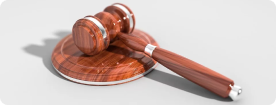
Adapting to Change: Litigation Trends Shaping 2024
With the rapid pace of change and ever-evolving regulatory landscape, the risk of litigation is even more prominent for businesses today. As litigation exposure continues to be a leading concern for in-house teams, it is more important than ever for legal professionals to understand current litigation trends so they can best adapt to and prepare for future changes. Panelists in this session will provide a comprehensive look at shifts in the litigation environment, and will provide actionable strategies for tackling these complex cases.
 .
.












